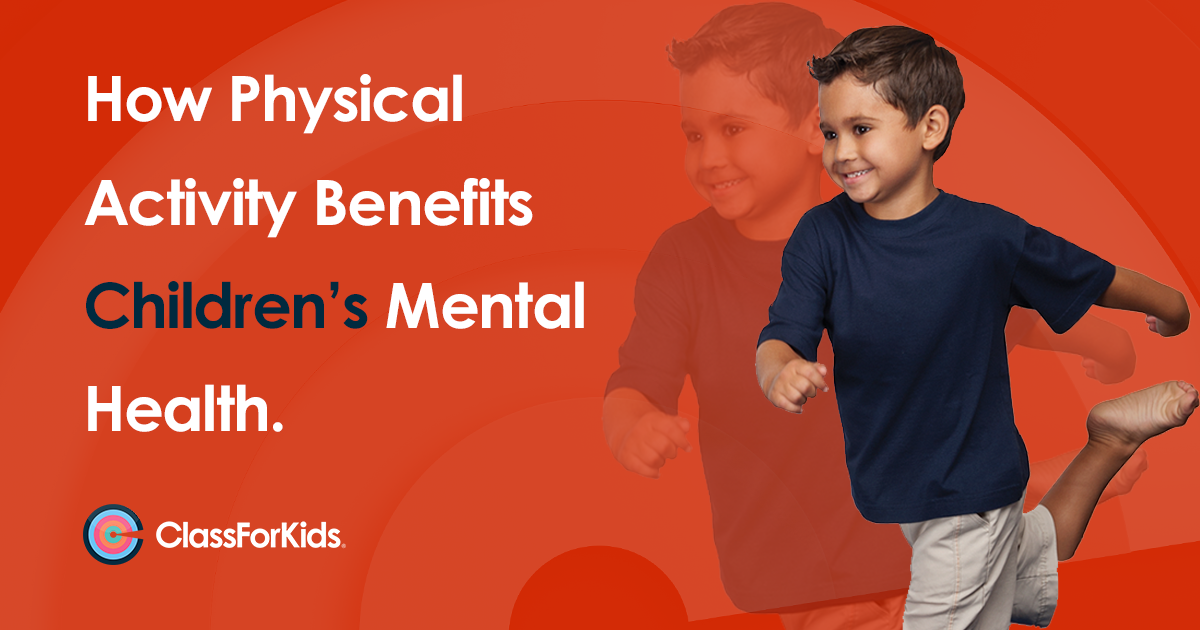Shining the Spotlight on Children’s Mental Health Week.
Think back to when you were a child. Remember all those days spent playing football, jumping on trampolines, climbing trees, throwing that basketball, swimming … and the way your mood was instantly lifted afterwards?
In recent years, research has taught us about the benefits physical activities bring to the mental health of you and your children. From improved moods to reducing anxiety to increased self-esteem, physical activity and regular exercise make us happier!
And as the pandemic continues to change the way we live, children's mental health is more important than ever. With schools closed and out of school activities suspended, we shouldn't forget the benefits of physical activity at home.
Why? Well here are our top 5 reasons on why physical activity is great for your children’s mental health and well-being.

1.It Releases Happy Chemicals.
Regular exercise releases endorphins and improves our mood. Studies have shown that physical exercise is also a great way of reducing stress. So if your child is feeling a bit of pressure from homework or studying, tell them to take frequent breaks by getting physical!
Have them spend 15 minutes away from their screens playing football or going for a walk. It's a brilliant way to clear your mind and freshen up your mood!
2.It Builds Self-Confidence and Self-Esteem.
Children need to develop their personalities and self-esteem in a supportive environment where they can learn about confidence, character-building, and working within a team.
Physical activity boosts your child’s self-image, regardless of their physical appearance. Being brilliant at a sport can really elevate their own perception of themselves and help them gain some confidence in their own self-worth.

3.It Decreases the Risks of Anxiety and Depression.
Research shows that introducing physical activity from a young age reduces the risks of your child developing anxiety and/or depression. It helps your child learn how to cope with stress by focusing on learning new skills, fulfilling the demands of a sport, communicating and achieving a sense of accomplishment.
Physical activity is also a great mechanism for building communication skills. When you know how to express what you need, your child is more likely to have the confidence to talk about anything that's making them anxious or ask for help when needed.
4.It Improves Necessary Social Skills.
Physical activity provides your child with a safe environment to develop their social skills. Making friends, working as a team, being a leader, learning how to win or lose and playing fair are great qualities that can strengthen your child’s ability to sustain friendships and build relationships.
We are humans after all and humans are known to be social creatures. Start young!
5.It's Fun!
Simply put, physical activity lets your child have fun! It encourages your children to discover their own interests and allows them to figure out their own ways to have fun based on what they love!
When children find passion in activities that they love, they could potentially grow their interests into a future career. Who knows, you might have the next Olympic Gold Medallist for gymnastics or the fastest swimmer in the whole of the UK, or even the next Andy Murray!
You never know until you let them explore new things, try and have fun!
So there you have it! 5 ways physical activities can improve your child's mental health and well-being. Although you may be limited in what you can offer your children to get involved in, try spending time together going for walks or exercising with the whole family.
And when the time's right, why not get your children in a kid’s activities club? It’ll definitely benefit their physical AND mental health in the long run, and we’re sure that they’ll have all the fun in the world!
Find out more about Children’s Mental Health Week 2021.